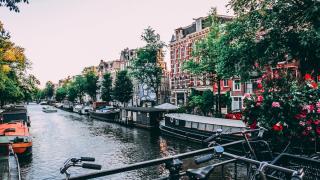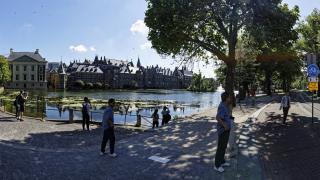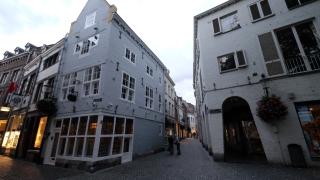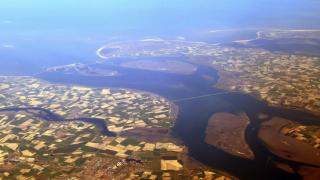Why Rent a Car in the Netherlands?
Car rental in the Netherlands offers unique travel flexibility. Many rural areas and small towns, like Giethoorn or Kinderdijk, have limited public transport. National parks such as Hoge Veluwe are best accessed by car. Tulip routes in the Bollenstreek region are easier to explore by car, especially in April and May. Driving the Afsluitdijk or Zeeland’s coastal roads is more convenient with a rental vehicle.
- Rental cars are available at Schiphol Airport, Rotterdam The Hague Airport, and major train stations.
- Typical daily rates range from €35-€60 for compact cars.
- Families or groups benefit from larger vehicles; minivans and station wagons are common options.
- Some countryside B&Bs and holiday parks are not reachable by train or bus.
- Parking in Amsterdam, Utrecht, and Rotterdam is expensive and limited. City centers have strict environmental zones (milieuzones).
- Traffic congestion is common during weekday rush hours near Randstad cities.
For day trips outside main cities or multi-stop itineraries, renting a car saves time. Always check local parking rules and environmental restrictions before entering urban areas.
Rental Companies and Booking Tips
Major car rental providers in the Netherlands include:
- International brands: Hertz, Europcar, Sixt, Avis, Enterprise.
- Dutch companies: Bo-rent, SternRent, Greenwheels (car sharing), and Diks Autoverhuur.
Rental locations:
- Schiphol Airport and Rotterdam The Hague Airport have the largest rental hubs.
- Major train stations (Amsterdam Centraal, Utrecht Centraal) offer rental desks.
- City centers in Amsterdam, Rotterdam, Utrecht, and Eindhoven have multiple agencies.
Booking tips:
- Use Dutch comparison sites like EasyTerra.nl or Rentalcars.com for best rates.
- Prices start from €35–€50 per day for a compact car in low season.
- Summer (June–August) and Dutch public holidays see peak demand. Book at least 2–4 weeks ahead.
- Minimum driver age is usually 21. Some firms require 23 or 25 for larger vehicles.
- Young driver surcharges (under 25) average €10–€20 per day.
- A valid EU or EFTA license is accepted. Non-EU visitors may need an International Driving Permit (IDP).
- Credit card in main driver’s name is required for deposit.
- Most rentals are manual transmission. Automatics cost more and should be reserved early.
Driver Requirements and Documentation
A valid driving license is required to rent a car in the Netherlands.
- EU/EEA licenses are accepted without restrictions. UK licenses are valid post-Brexit.
- Non-EU/EEA visitors must present an International Driving Permit (IDP) if their license is not in English, Dutch, German, or French.
- Minimum driver age is usually 21. Some companies require drivers to be 23 or older for larger vehicles.
- Drivers under 25 may pay a young driver surcharge, typically €10–€25 per day.
- Most rental companies require at least one year of driving experience. Some premium vehicles require two years.
- A valid passport or EU national ID card is required for identification at pickup.
- A major credit card in the main driver’s name is mandatory for deposit and payment. Debit cards are rarely accepted.
- Adding an extra driver costs €5–€10 per day. All drivers must show valid licenses and passports.
- Basic third-party liability insurance is included by law. Collision Damage Waiver (CDW) and Theft Protection are optional but strongly recommended.
- Insurance excess can range from €300 to €1,000. Extra coverage to reduce excess is available.
Dutch roads are well-maintained and clearly marked. Most highways (autosnelwegen) are free of potholes and have clear lane markings. Road signs use Dutch language, with international symbols. Blue signs indicate motorways; green signs mark provincial roads.
Speed limits are strictly enforced:
- 50 km/h in built-up areas
- 80 km/h on rural roads
- 100 km/h on highways (6:00–19:00), 120/130 km/h at night Speed cameras and average speed checks (trajectcontrole) are common. Fines are high and sent to rental agencies.
Traffic rules:
- Right of way to traffic from the right at intersections
- Trams and buses have priority
- Use dipped headlights in poor visibility
Parking:
- Paid parking zones (betaald parkeren) in most cities
- Use blue parking discs (parkeerschijf) in designated zones
- Amsterdam, Utrecht, and Rotterdam have high hourly rates (€5–€7)
- Park+Ride (P+R) lots offer cheaper options outside city centers
Toll roads:
- Most roads are toll-free
- Exceptions: Westerscheldetunnel (€5–€7.50 for cars), some tunnels and bridges
Environmental zones (milieuzones):
- Older diesel vehicles may be restricted in city centers
- Check rental car emissions sticker
Cyclists:
- Cyclists have priority at many crossings
- Watch for dedicated bike lanes (fietspad) marked in red
- Always yield to cyclists when turning
Typical rental rates in the Netherlands:
- Economy cars start from €35-€50 per day in Amsterdam or Rotterdam.
- Rates include basic insurance (WA-verzekering), limited mileage, and VAT (BTW).
Insurance options:
- Collision Damage Waiver (CDW) and Theft Protection (TP) are often included, but excess fees apply (usually €300-€1000).
- Supplemental Liability Insurance (SLI) is available for extra coverage.
- Personal Accident Insurance (PAI) is optional.
Common extra charges:
- Young driver fee: €15-€25/day for drivers under 25.
- One-way rental within the Netherlands: €30-€80.
- Cross-border fees apply for travel to Belgium or Germany.
- Additional driver: €5-€10/day.
- Fuel: Most rentals use full-to-full policy. Refueling charges are higher at return.
- Some companies limit daily kilometers; excess mileage costs €0.20-€0.35/km.
Deposit and payment:
- Credit card deposit: €300-€1500, refunded after return.
- Debit cards are rarely accepted.
Money-saving tips:
- Book early for lower rates.
- Check for all-inclusive deals.
- Inspect the car for damage before departure.
Smart Strategies for a Smooth Rental
Checklist for pick-up:
- Inspect the car for scratches, dents, and windshield chips. Document with photos. Note all damage on the rental form.
- Confirm the fuel policy. Most Dutch rentals use 'vol-vol' (full-to-full). Check the fuel gauge before leaving.
- Verify the presence of a safety vest, warning triangle, and spare bulb kit. These are required by Dutch law.
Checklist for return:
- Refuel at a local station near Schiphol, Rotterdam The Hague, or Eindhoven airport. Save the receipt.
- Return the car during office hours to avoid after-hours fees. Inspect the car with staff present.
If an accident or breakdown occurs:
- Call the rental company’s Dutch emergency number (listed on the contract). Major firms offer 24/7 roadside assistance.
- For breakdowns on highways (autosnelwegen), use roadside emergency phones marked 'Praatpaal' or call ANWB at 088 269 2888.
Dispute resolution:
- If charged for damage, request the inspection report and photos. Disputes can be escalated to the Dutch Consumers’ Association (Consumentenbond).
Final reminders:
- Keep toll receipts and parking tickets. Dutch cities enforce strict parking rules. Always lock the car and remove valuables.












